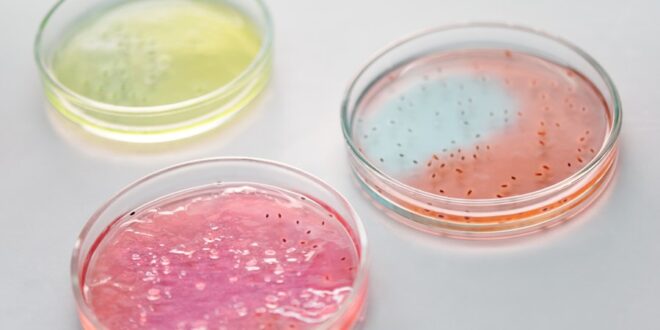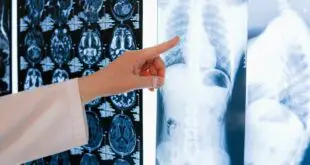Does Human Microbes Actually Pay? This question explores the mutual link between our bodies and the trillions of microbes inside us. It affects our health, well-being, and understanding of humanity beyond microscopic species.
The human microbiome bacteria, viruses, fungi, and other microorganisms affects our immune system, digestion, mental health, and metabolism.
But to what extent do these invisible inhabitants genuinely contribute to our existence? This inquiry takes us on a fascinating journey through microbiology, where the solutions may uncover new healthcare, nutrition, and personalized treatment avenues.
We’ll explore the symbiotic link between people and microbial counterparts and see if human microbes pay off in ways we never thought.
Does Human Microbes Actually Pay?
Yes, Human Microbes pays stool donors. Stool donations pay $500 and can be made twice a week. This implies donating your stool may reward you $180,000 every year.
Apply to donate stool to Human Microbes on their website. You will be advised of your eligibility within 6-8 weeks after applying for 30 minutes.
What Are Human Microbes?
Human Microbes is a company that provides stool donation services to researchers and healthcare providers.
They prepare stool samples from healthy volunteers for research or clinical purposes. The firm aims to “improve human health through the understanding and application of the human microbiome.”
The human microbiome is the collection of bodily microbes. These microbiotas comprise bacteria, archaea, viruses, and fungus. The microbiome helps with digestion, immunity, and metabolism, making it vital to human health.
Healthy volunteers donate stool samples for study or treatment. These samples can investigate the human microbiome, create new medicines, or transplant good gut bacteria into persons with bad gut flora.
Human Microbes is one of numerous stool donation firms. The firm helps academics and healthcare practitioners understand the human microbiome and has a good reputation for safety and quality.
What Are the Requirements For Donating Stool?
Stool donation requires specific qualifications. Without chronic diseases such as inflammatory bowel disease, colorectal cancer, or HIV/AIDS, donors must be physically and mentally healthy.
They should also not have mental health issues that might affect stool donation. Age also matters, with donors under 30 preferred, but those under 18 with parental agreement may be accepted.
Antibiotics can disturb good gut flora, decreasing stool transplant efficacy. Thus, minimum usage in the last three months is essential.
Donors should also have a Bristol Stool Type of 4 or 5, suggesting soft, formed stools. Donations benefit from this stability.
Geographic location matters; donors should live near dry ice. Dry ice is needed to freeze and transport feces safely.
These parameters assure stool donation quality and safety, crucial for fecal microbiota transplantation (FMT) therapies.
General Process of Donating Stool
Stool donation goes as follows:
- Screening: The donor is tested for chronic conditions, recent antibiotic usage, and bloodborne infections.
- Collection: Donors use stool bank kits to collect stool samples at home. The kit includes a feces container, preservatives, and instructions. The stool bank instructs donors to collect and return a bit of stool in the container.
- Testing: Stool samples are screened for dangerous bacteria and parasites.
- Storage: Dry ice freezes feces samples in a cold chamber.
- Distribution: Needed recipients receive stool samples.
How Do Human Microbes Ensure the Safety of Stool Donations?
Human Microbes rigorously screen stool contributions for safety. The procedure includes:
- Medical history: Donors are checked for chronic conditions such as IBD, colorectal cancer, and HIV/AIDS.
- Antibiotic use: Antibiotics destroy gut microorganisms; thus, donors are checked for recent antibiotic usage.
- Blood tests: Blood tests for hepatitis B, C, and HIV are performed on donors.
- Stool tests: Donor feces is checked for dangerous bacteria and parasites.
- Psychological evaluation: Donors are assessed for mental health issues that might hinder stool donation.
Human Microbes ensure stool donation safety throughout shipping and storage in addition to screening. Stool contributions are frozen in a cold chamber with dry ice. This inhibits dangerous germs.
- To assure stool donation safety, Human Microbes has a stringent quality control program. This program involves checking stool contributions for dangerous bacteria and parasites regularly.
- Temperature monitoring in the stool donation cold room.
- Teaching workers how to handle stool contributions.
Human Microbes ensure stool donation safety for researchers and healthcare practitioners by following these strict processes.
Potential Benefits of Donating Stools to Human Microbes
Stool donations to Human Microbes can help people and the community. First, stool donations can help people with Clostridium difficile (C. diff) infections, which cause diarrhea, fever, and stomach discomfort. Fecal microbiota transplantation (FMT) is better than antibiotics when they fail to cure this illness.
Beyond C. diff infections, FMT is being investigated as a therapy for digestive disorders, including IBS and IBD, giving hope to patients with these problematic ailments.
FMT is also being studied for its potential to treat obesity, allergies, and autism, with encouraging results.
In addition to these health benefits, stool donation allows people to give back to their community and aid the sick.
Donating feces can improve medical treatments and the well-being of others, making it a valuable and selfless donation to healthcare.
Potential risks of donating stool to Human Microbes
Donating stool to Human Microbes has many advantages, yet there are hazards. Transmission of infectious illnesses is a danger.
Despite rigorous screening, a donor may accidentally transfer a contagious disease to the recipient, especially for germs and parasites that are difficult to detect.
A recipient’s allergic response is another danger. Depending on sensitivities, the recipient may have a minor or severe allergic reaction to the donor’s feces soon after the donation or days or weeks afterward.
Additionally, the donor may get an infection from the receiver. Hepatitis A and E are spread via feces and are more at risk.
Given these concerns, stool donors must weigh the pros and downsides. Stool donation dangers and advantages should be discussed with a healthcare practitioner or doctor to make an educated decision based on their unique circumstances and health needs.
Different Ways That Stool Donations Are Used
There are two main uses for stool donations:
- Fecal microbiota transplantation (FMT) transfers stool from a healthy donor to a recipient. This is the most popular stool donation use, which treats C. diff infection, IBS, and IBD.
- Research. Stool donations are used for research. Scientists studying the gut microbiota in various health disorders need stool samples from healthy persons.
Ethical And Legal Issues Surrounding Stool Donations
Stool donations raise ethical and legal concerns. Examples of these issues:
Informed consent: Stool donors must understand the dangers and advantages before consenting. This includes infection and psychological/emotional impairment.
Privacy: Stool samples should be handled carefully to protect donors’ privacy. Samples should be kept private and not utilized commercially without donor consent.
Commercialization: Stool donations are expanding; some corporations pay donors for their samples. This raises worries about donor exploitation and financial incentives compromising donation safety.
Public health: Stool donations may spread pathogens. This is especially important for stool contributions utilized for research, as they may be used to study unknown diseases.
Regulation: Stool donation regulation is unclear. Donations are not guaranteed for safety or quality.
There are several stool donation ethical and legal difficulties. As stool donations for medical and research rise, these challenges must be addressed and precautions implemented to protect donors and beneficiaries.
Potential Future Applications of Stool Donations
Stool donations have many exciting future uses. Stool donation is a young field of research, but there is emerging evidence that it could treat many illnesses.
Future stool donation uses include:
- Disease prevention: Stool donation can introduce helpful bacteria to at-risk individuals. Stool donation could prevent Clostridium difficile infection (CDI) in persons who recently took antibiotics.
- Treatment of cancer: Stool donation can transfer helpful bacteria to combat cancer cells. Colorectal cancer treatment using stool donation is being researched.
- Improve mental health: Stool donation can boost mental health by transmitting brain-healthy bacteria. Depression treatment using stool donation is being researched.
- Treatment of allergies: Stool donation can transfer helpful bacteria to lower the immune response to allergens, treating allergies. Food allergy treatment with stool donation is being explored.
- Enhancement of athletic performance: Stool donation can boost sports performance by introducing helpful bacteria that aid digestion and nutrient absorption. Stool donation is being researched for gut-problem athletes.
These are several stool donation uses in the future. As the study proceeds, we may find new ways to improve human health through stool donation.
Conclusion
Does human microbes actually pay? Human Microbes compensates stool contributors $500 for each donation, providing a possible yearly incentive of up to $180,000.
Donating stool to Human Microbes is well-structured to ensure donor safety and stool quality for research and clinical use. Human Microbes helps us understand the microbiome, a vital part of human health.
The firm helps investigate therapies for Clostridium difficile (C. diff) infections, irritable bowel syndrome (IBS), and inflammatory bowel illnesses by collecting feces from healthy volunteers.
As the study progresses, stool contributions may improve human health in ways we don’t yet know.
Donating stool or researching its possibilities requires thoroughly considering the pros and downsides and help from healthcare specialists to make educated decisions that can improve health and well-being.
 Being Human
Being Human




